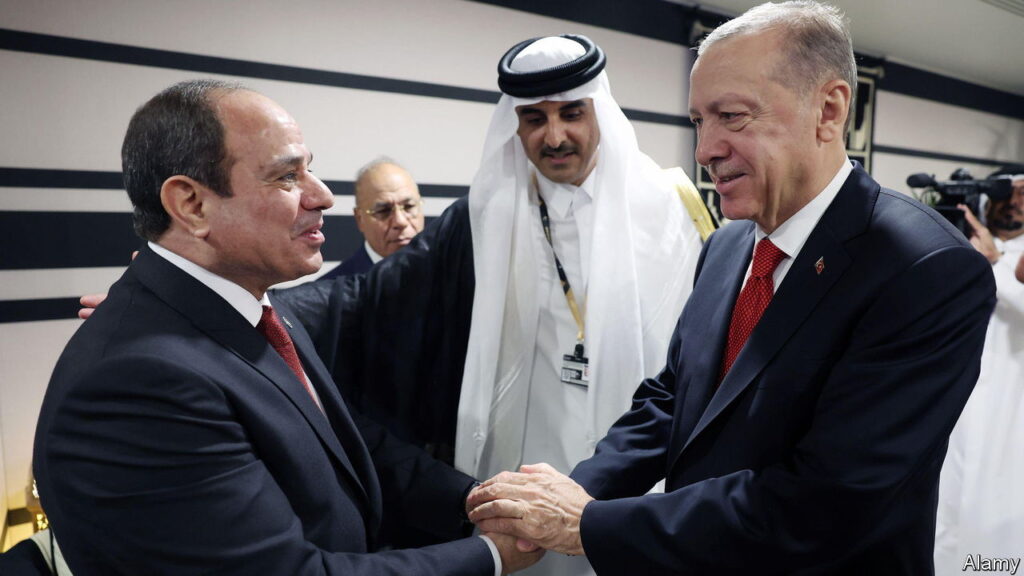Mango juice is delicious, so AK officials had no reason to complain when Erdogan began serving it at the palace last year. But they may have been confused to hear it was a gift from Egyptian President Abdel Fattah el-Sisi, since Erdogan and Sisi hadn’t spoken in a decade. An avowed Islamist, Erdogan gave his all to the Muslim Brotherhood, which took power in Egypt after protests ousted Hosni Mubarak in 2011. When Sisi came to power two years later in a coup that killed hundreds of protesters, the Turkish leader called him a tyrant, held rallies in support of deposed Egyptian President Mohammed Morsi, and gave refuge to other Brotherhood leaders.
Political Islam has not penetrated Turkey as much as Erdogan would have liked. But the Arab Spring that shook the Middle East in 2011 has helped Turkey emerge as one of the major exporters of Islam. Turkey supports the Brotherhood and other Islamist groups in Egypt, Libya, Syria and Tunisia. Erdogan and his then-foreign minister, Ahmet Davutoglu, wanted to hasten the collapse of the old regional order and strengthen Turkey’s influence in the new one. But that policy lost steam when Sisi came to power in Egypt, and in Syria two years later, when Russia intervened to support Assad. Now that policy has been reversed. In November, Erdogan met with Sisi for the first time on the sidelines of the World Cup in Qatar. Months of talks between Turkish and Egyptian intelligence and diplomats paved the way for the meeting.


